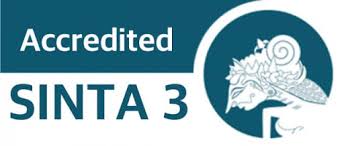The Effect of Using the Sharing Application (Tik-Tok) on the Character Development of Elementary School Children
DOI:
https://doi.org/10.54069/attadrib.v6i1.400Keywords:
Tik-Tok Application, Character Development, Elementary School ChildrenAbstract
The development of information technology has changed people's lives in all civilizations and cultures. One of the various and most favorite social media for elementary school children today is the sharing application "Tik-Tok". The use of the "Tik-Tok" application is felt as a means to prevent children from getting bored in between activities. Apart from eliminating boredom, the "Tik-Tok" application also has a big impact on children's character development. This study aims to determine the level of use of the Tik-Tok sharing application in elementary school-age children, to determine the level of character development of elementary-age children, and to determine the impact of using the Tik-Tok sharing application on the character development of elementary school-age children in Klidang Wetan Village, District Batang, Batang Regency. This research approach through a quantitative approach to the type of field research. This research data collection techniques through observation methods, survey methods and documentation methods. The number of samples consisted of 115 students in grades IV, V and VI of SDN Klidang Wetan, Batang District, from a total population of 161. The results showed that the use of the Tik-Tok Sharing Application in Klidang Wetan Village, Batang District, was included in the high criteria. Meanwhile, the level of character development of elementary school children in Klidang Wetan Village is included in the high criteria. In addition, the effect of using the Tik-Tok Sharing Application affects character development. The coefficient (R) obtained from the statistical test is 0.386 and the coefficient of determination R-square is 0.149. In short, the transformative effect of using the Tik-Tok Sharing Application on the character development of Elementary School-aged children is 14.9%, the remaining 85.1% is the influence of other factors.
Downloads
References
Antara, P. A. (2019). Implementasi Pengembangan Karakter Anak Usia Dini dengan Pendekatan Holistik. Jurnal Ilmiah VISI PGTK PAUD Dan Dikmas, 14(1), 17–26.
Arifa, F. N. (2020). Tantangan Pelaksanaan Kebijakan Belajar Dari Rumah Dalam Masa Darurat Covid-19. Info Singkat;Kajian Singkat Terhadap Isu Aktual Dan Strategis, XII(7/I), 6.
Asbah, A., Khobir, A., Anisa, S., & Nur Hasanah, F. (2021). Integration of The Education System Between Syafi’i Akrom Islamic Boarding School And SMP Sains Cahaya Al- Qur’an Pekalongan City Indonesian. International Conference on Islamic Studies (ICIS), 224–243.
Asnawir. (2012). The Correlation Between Character Building And Peaceful Thinking of Students at Darussalam Islamic Boarding School In Ponorogo. Jurnal At- Ta’lim, 1(2).
Damayanti, T., & Gemiharto, I. (2019). Kajian Dampak Negatif Aplikasi Berbagi Video Bagi Anak-Anak Di Bawah Umur Di Indonesia Tujuan dari LTE adalah untuk kapasitas dan telah dikembangkan pada awal milenium baru. Sistem antarmuka terpisah. Koneksi internet dengan data untuk mengunduh ( downl. Communication, 10(April), 1–15.
Engelen, B., Thomas, A., Archer, A., & van de Ven, N. (2018). (2018). Exemplars and Nudges Combining Two Strategies for Moral Education. Journal of Moral Education, 47(3), 346–365. https://doi.org/10.1080/03057240.2017.1396966
Fatimah, F. S., Asy’ari, H., Sandria, A., & Nasucha, J. A. (2023). Learning Fiqh Based on the TAPPS (Think Aloud Pair Problem Solving) Method in Improving Student Learning Outcomes. At-Tadzkir: Islamic Education Journal, 2(1), 1–15. https://doi.org/10.59373/attadzkir.v2i1.13
Hasanah, F. N., Lya, S., & Pramesti, D. (2021). Implementasi Metode Problem Solving dalam Pembelajaran Matematika Siswa Kelas Va di SD Muhammadiyah Kajen Kabupaten Pekalongan merupakan suatu pelajaran yang menggunakan simbol atau. SEMAI?: Seminar Nasional PGMI 2021, 691–707.
Hasanah, F. N., Marwa, A., & Dyah Kusumawati, P. R. (2021). The Challenge Of MI Salafiyah Beji Teacher’s Professionalism Towards Learning in The Covid-19 Pandemic. 531–540.
Heriyanto. (2003). Paradigma Holistik: Dialog Filsafat, Sains, dan Kehidupan Menurut Shadra dan Whitehead. Bandung: Mizan Media Utama.
Jamal Ma’ruf, A. (2012). Buku Panduan Internalisasi Pendidikan Karakter di sekolah. Yogyakarta: Diva Press.
Khobir, A., Rosalina, K., Nur Hasanah, F., & RIF’IYATI, D. (2021). Multicultural Islamic Education: Gus Dur and Cak Nur Perspectives. Edukasia Islamika, 8(2), 2021.
Khobir, A., Sopiah, S., & Nur Hasanah, F. (2021). EDUKASIA ISLAMIKA A Holistic Model for Character Education in Schools ( An Alternative Educational Model ). 6(2), 289–303.
Komalasari, M., & Yakubu, A. B. (2023). Implementation of Student Character Formation Through Islamic Religious Education. At-Tadzkir: Islamic Education Journal, 2(1), 52–64. https://doi.org/10.59373/attadzkir.v2i1.16
Mazidah, N. I. (2022). Children Social Interaction Changes As A Result Of ‘Tiktok’ Influence. Agenda: Jurnal Analisis Gender Dan Agama, 4(1), 65–74.
Miller, J. P. (2007). The Holistic Curriculum , Rivised and Expanded Edition. Canada: Universitas of Toronto Press.
Novitasari, & Addinna, A. (2022). Students ’ Perception on the Use of TikTok for Learning English. Journal of English Language Teaching, 11(4), 566–579. https://doi.org/10.24036/jelt.v11i4.119484
Saadah, R., & Asy’ari, H. (2022). Manajemen Sekolah Berbasis Pesantren Dalam Membentuk Karakter Peserta Didik. Kharisma: Jurnal Administrasi Dan Manajemen Pendidikan, 1(1), 1–11.
Samad, S. A. A. (2018). Pembelajaran Arab Melayu dan Pengaruhnya Terhadap Pembentukan Karakter Siswa di Sekolah Dasar Kabupaten Pidie, Aceh. Ekspose, 17(1), 499–513.
Sani, R. A., & Kadri, M. (2016). Pendidikan Mengembangkan Karakter Anak yang Islami. Jakarta: PT Bumi Aksara.
Saputro, A. N. A., & Darim, A. (2022). Strategi Kepala Sekolah Dalam Kebijakan Pembelajaran Pada Masa Pandemi Covid-19 di Sekolah Dasar. Kharisma: Jurnal Administrasi Dan Manajemen Pendidikan, 1(1), 36–47.
Setiawan, T., Nasrudin, F. W., & Hasanah, F. N. (2021). Penggunaan Chromebook Bermuatan Game Edukasi untuk Meningkatkan Aktivitas dan Prestasi Belajar Matematika Siswa SD di Kabupaten Boyolali. 1, 75–86.
Susanti, F., Wulansari, I., Harahap, E. K., & Hamengkubowono, H. (2023). Implementasi Kepemimpinan Kepala Madrasah dalam Pelaksanaan Manajemen Berbasis Madrasah. Kharisma: Jurnal Administrasi Dan Manajemen Pendidikan, 2(1), 1–17. https://doi.org/10.59373/kharisma.v2i1.12
Sutrisno, S., & Nasucha, J. A. (2022). Islamic Religious Education Project-Based Learning Model to Improve Student Creativity. At-Tadzkir: Islamic Education Journal, 1(1), 13–22.
Yamin, M., Basri, H., & Suhartini, A. (2023). Learning Management in Salaf Islamic Boarding Schools. At-Tadzkir: Islamic Education Journal, 2(1), 25–36.
Downloads
Published
How to Cite
Issue
Section
License
Copyright (c) 2023 Fatmawati Nur Hasanah, Kristiyah Kristiyah

This work is licensed under a Creative Commons Attribution-ShareAlike 4.0 International License.





